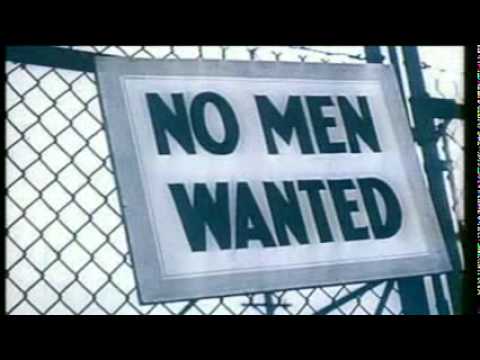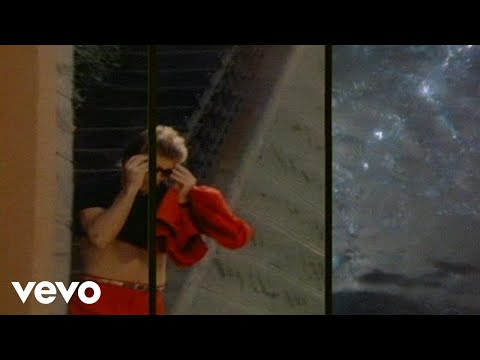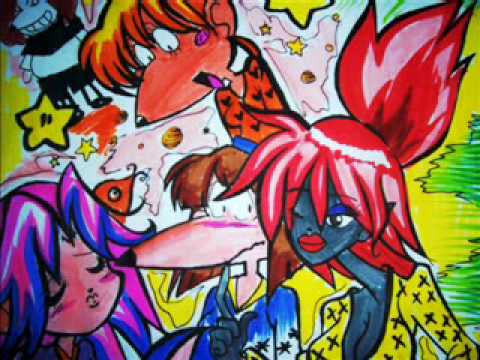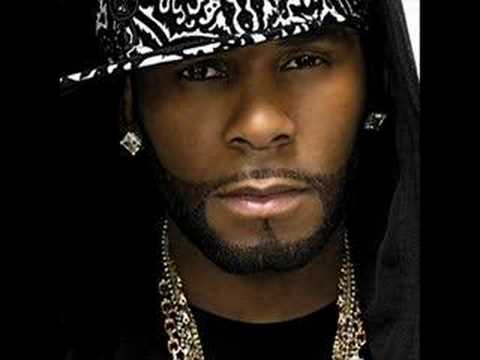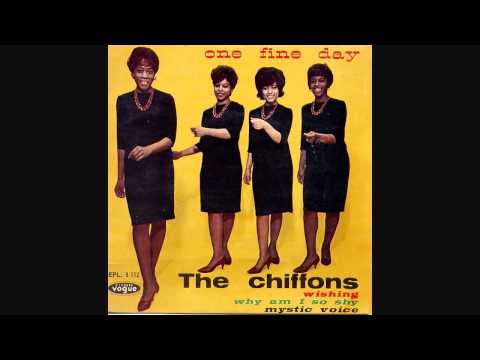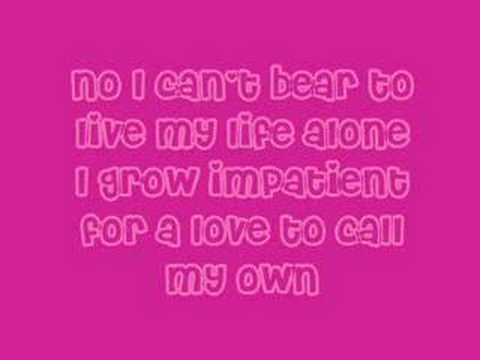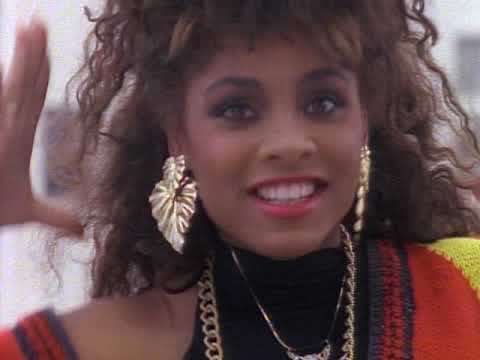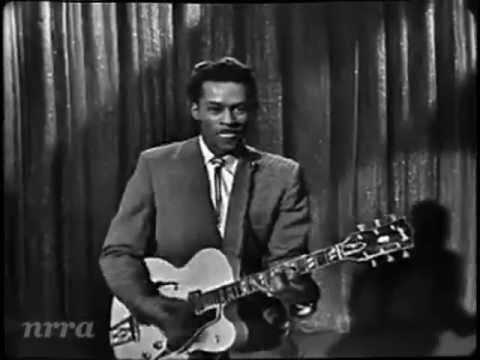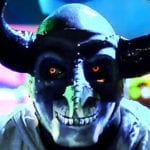In some cases it can be hard to determine if a song has been violated, while in others the rip-off is clear. Some acts in the music industry care more about copyright infringement then others. The well established and famous bands, such as The Beatles, Tom Petty and Simon and Garfunkel allow certain remakes of their songs, and consider the action as a sign of respect. This article will be documenting ten of the most obvious popular music rip-offs.
Original: Led Zeppelin: Going to California Rip-Off: Pearl Jam: Given to Fly [View] Going to California is a song released by Led Zeppelin, in 1971. The single has a folk sound and it is different from other tracks included on Led Zeppelin IV. It is a fan favorite, with Robert Plant on lead vocals, acoustic guitar by Jimmy Page and mandolin by John Paul Jones. The lyrics of the song are reportedly about Canadian singer Joni Mitchell, with whom Plant and Page were both infatuated. In 1998, American rock band Pearl Jam released their 5th studio album. The first and most successful single on the record is named Given to Fly. The song reached the Top 25 in many countries, and peaked at #12 in the UK. It closely follows the structure and melody used by Led Zeppelin in Going to California. The acoustic guitar beat used in the song is similar to the work done by Jimmy Page. However, critics have also labeled the track as a subpar attempt to mirror Led Zeppelin. Fans of Pearl Jam have named the single as one of the band’s most significant. When asked about the similarities of the two songs, Pearl Jam guitarist Mike McCready stated “It’s probably some sort of rip off of it I’m sure…Whether it’s conscious or unconscious, but that was definitely one of the songs I was listening to.” It seems that the members of Led Zeppelin have taken the sample as a sign of respect. At a 2005 benefit concert, Pearl Jam and Robert Plant performed Given to Fly and then segued into Going to California.
Original: Queen and David Bowie: Under Pressure Rip-Off: Vanilla Ice: Ice Ice Baby [View] In 1981, the band Queen and David Bowie recorded a #1 hit single named Under Pressure. The song marked Bowie’s first musical collaboration with another vocalist. The tune evolved from a jam session that Bowie had with Queen in Montreux, Switzerland. The singles primary songwriter is Freddie Mercury and the famous bassline was developed by Queen’s bassist, John Deacon. Some online magazines have even labeled Under Pressure’s bassline as the best in popular music history. Sadly, Queen and David Bowie never preformed the song live together as Freddie Mercury passed away in 1991. American rapper Vanilla Ice hit the scene in the late 1980s, with a single titled Ice Ice Baby. Vanilla took advantage of the questionable musical personas of the time, and put together a melody that people loved. Ice Ice Baby was influential in the history of music, and the song became the first hip hop single to top the US chart. It gained attention from people all over the world, and became a #1 hit in the UK, Ireland, Australia, The Netherlands and Italy. Something about the song is catchy, and it is partly due to the fact that the hook samples the bassline of Under Pressure. Vanilla wrote his own lyrics, but used one of the most famous beats in the world for his song. Originally, Queen and David Bowie were given no credit or royalties by Vanilla Ice, but after the song became an international success the situation was brought to the attention of Bowie, and he was not happy. Vanilla Ice claimed that the two melodies were slightly different because he had added an additional note to the tune, but he was ultimately forced to pay Queen and David Bowie for sampling their work. Freddie Mercury and David Bowie were also given songwriting credit for the sample.
Original: Huey Lewis and the News: I Want a New Drug Rip-Off: Ray Parker Jr.: Ghostbusters [View] Watch this video on YouTube Huey Lewis and the News is an American band that had a number of hit singles during the 1980s and early 1990s. The group’s most successful album was titled Sports, and was released in 1983. The record spawned four Top 10 hits in the United States, including the single I Want a New Drug. I Want a New Drug is a tune written by Huey Lewis. The song quickly became a popular dance hit and radio favorite. In 1984, movie producers approached Huey Lewis and asked him to develop the musical theme for the film, Ghostbusters. Huey declined the offer because he was working on the soundtrack for the movie Back to the Future, which ended up giving him a #1 hit single with the song The Power of Love. The work on Ghostbusters was, instead, given to singer Ray Parker Jr., who developed the film’s famous theme. The Ghostbusters theme became a hit single in 1984, reaching the top of the US singles chart for three weeks. The song peaked at #2 in the UK, and is performed in the key of B major. After Huey Lewis heard the Ghostbusters theme he immediately sued Ray Parker Jr. for copyright infringement, claiming that the song’s melody was stolen from I Want a New Drug. Huey was primarily concerned with the guitar riff that runs throughout the Ghostbusters’s song. In 1985, the two parties settled out of court, and Huey Lewis was given compensation from Ray Parker Jr. and the Ghostbusters franchise. The guidelines in the deal prohibited either side from discussing the issue, but in 2001 Huey Lewis commented on the payment he received from Ray Parker Jr. in a VH1 interview. Parker subsequently sued Lewis for breaching confidentiality and the lawsuit is ongoing.
Original: The Beatles: Ob-La-Di, Ob-La-Da Rip-Off: The Offspring: Why Don’t You Get a Job? [View] Ob-La-Di, Ob-La-Da is a song that was released by The Beatles on their 1968 self-titled album. The tune was written primarily by Paul McCartney, around the time that highlife and reggae were beginning to become popular in Britain. George Harrison was quoted as writing “We all know ob-la-di-bla-da, but can you show me where you are.” The pace of the song is very familiar and it is in the key of B flat. In 1998, the American punk rock band The Offspring released their multi-platinum album titled Americana. The 11th track on the record is named Why Don’t You Get a Job. The melody and rhythm of the song is identical to The Beatles hit Ob-La-Di, Ob-La-Da. Why Don’t You Get a Job also samples elements of the Simon and Garfunkel hit Cecilia. The song became an international hit single for The Offspring, reaching the Top 10 all over the world and peaking at #2 in the UK. I could find no indication that the band offered The Beatles or Simon and Garfunkel any monetary compensation for using their work. Instead, the song is viewed as a tribute to Ob-La-Di, Ob-La-Da. It is not the first time that musicians have used samples from Beatles songs. In 1975, the Scottish rock band Nazareth released a song and album titled Hair of the Dog. The title track instantly drew many comparisons to the Beatle hit Day Tripper. In 1996, the American band Sublime released their self-titled album. The record was a major hit and spawned the single What I Got, which became one of the biggest selling records of 1997. What I Got has been noted for carrying a melody that is almost identical to The Beatles song Lady Madonna.
Original: R. Kelly: Ignition (Remix) Rip-Off: Akon: Don’t Matter [View] In 2002 R&B singer R. Kelly released a single titled Ignition. The track was a remix of a previous Kelly song and it quickly became a hit single. The tune was written and produced by R. Kelly, and reached the top of the charts in New Zealand, Australia and the UK. It became R. Kelly’s second #1 single in the UK, after his 1997 release I Believe I Can Fly. The bassline and melody used in the song is catchy and it became a popular choice for dance mixes. This was recognized by fellow musician Akon, who sampled the melody of Ignition for his 2007 single Don’t Matter. Akon decided to borrow the progression from Kelly and scored a major hit. Don’t Matter reached the top of the singles chart in the US, Australia, Canada, Ireland and New Zealand. The song also uses parts of Bob Marley’s 1979 classic Zimbabwe during the chorus. No details documenting a contract between the two parties were released and it is unclear whether R. Kelly was compensated for the infringement.
Original: The Chiffons: He’s So Fine Rip-Off: George Harrison: My Sweet Lord [View] He’s So Fine is a hit single performed by the female group The Chiffons. The song topped the US singles chart for four weeks in the spring of 1963. It was written by Ronald Mack and produced by Bright Tunes Corporation. He’s So Fine is one of the most recognizable songs released during the 1960s, and is routinely included on Golden Oldies CDs. In 1970, George Harrison released his first solo album titled All Things Must Pass. The record was the first triple album and featured three separate LPs. My Sweet Lord is a song that was included on the record. The lyrics of the tune are primarily about Hindu God Krishna, and the single became the first song by a solo Beatle to reach #1 on the UK and US singles chart. Following the release of My Sweet Lord, people began to notice that the song’s melody had similarities with The Chiffons hit He’s So Fine. In February of 1971, Bright Tunes Music filed suit against George Harrison, alleging musical plagiarism. The case went to court and the trial became a highly talked about, and reported, issue. The Bright Tunes Music v. Harrisongs Music case is one of the biggest plagiarism trials in the history of music. During the trial, George Harrison’s royalty payments for his song were halted, and he was ultimately found to have “subconsciously” copied The Chiffons single. He was ordered to surrender his money earned from My Sweet Lord and give away a percentage of the dollars he made off All Things Must Pass. The loss of money did not faze the legendary Beatle, and George Harrison would eventually buy the rights to He’s So Fine. He also recorded a song about the court case named This Song. After George Harrison died from cancer, in 2001, My Sweet Lord was reissued in the UK. The song reached #1 for the second time, matching a mark held only by Queen’s hit Bohemian Rhapsody.
Original: The Supremes: You Can’t Hurry Love Rip-Off: Iggy Pop: Lust for Life; and Jet: Are You Gonna Be My Girl [View] Lust for Life is a 1977 song performed by Iggy Pop. The single was featured on the album of the same name. The song was co-written by Iggy Pop and David Bowie. In the 1970s, the track saw some chart success around the world, peaking at #3 in the Dutch Top 40. The song is recognized for a legendary live performance made by Iggy Pop in 1977, on the Dutch pop TV show Toppop. During the act, a shirtless Iggy wrecked the stage. Lust for Life has appeared in many films, most notably the 1996 movie Trainspotting. In 2003, the Australian rock band Jet released their debut album titled Get Born. The first single on the record was named Are You Gonna Be My Girl, and the song became a hit for the band. However, it soon was evident that the tune was similar to Iggy Pop’s Lust for Life. In fact the two songs share the same famous drumbeat. However, the beat was not original to Lust for Life, and came from the Supremes hit You Can’t Hurry Love. For this reason, Iggy Pop and David Bowie did not receive any royalties from Jet. No documents have been released indicating if Jet or Iggy Pop were forced to pay Motown for sampling their famous melody.
Originals: Public Enemy: Security of the First World; and A Poem by Ingrid Chavez Rip-Off: Madonna: Justify My Love [View] I couldn’t put this list together without mentioning the thieving ways of pop icon Madonna. Madonna has been sued dozens of times in her musical career. She has been accused of stealing lyrics, melodies, videos and a number of other forms of popular expression. Unlike many bands on this list, Madonna has been accused of stealing entire songs from lesser known musical artists. In 1990, Madonna released the single Justify My Love. The song was a departure from her early work and included breathy spoken passages over heavy dance beats. It just so happened that this was the same style as Prince protégé, Ingrid Chavez, who claims that Madonna stole her song and changed only one line of the music. During the early 1990s, Chavez worked closely with American singer-songwriter Lenny Kravitz, who is credited with co-writing Justify My Love. In 1991, Chavez sued Kravitz and Madonna, claiming that the entire lyrics for the song Justify My Love were written by her. She won the suit and was awarded a multi-million dollar settlement and co-writing credit on the track. The intro melody used in Justify My Love is sampled from the Public Enemy instrumental, Security of the First World. Public Enemy’s song is used as the backing for the entire track. Madonna has received criticism for not compensating Public Enemy for sampling their single. The list of songs and lyrics that Madonna has stolen is extensive. In 1990, she borrowed the melody and theme from the song Deep in Vogue by Malcolm McLaren for her 1990 single Vogue. Over the years Madonna has been accused of stealing many famous phrases, including “Like a Virgin” and “Express Yourself, Don’t Repress Yourself.”
Original: J.J. Fad: Supersonic Rip-Off: Fergie: Fergalicious [View] J. J. Fad was a female rap group that earned some success in the late 1980s. The group had only one hit single named Supersonic, but they have been recognized for expanding the popularity of hip hop music. J.J. Fad is most well known for their 1987 album titled Supersonic, which was released under Ruthless Records. The record was produced by Dr. Dre, DJ Yella, Arabian Prince and Eazy-E. The album contains ten songs, with one side representing pop music and the other hip hop. The single Supersonic did well on the US singles chart and helped make J.J. Fad the first female rap group to earn a Grammy nomination. In 2006, American singer Fergie released her debut solo album titled The Dutchess. The record was extremely successful and spawned five hit singles. Fergalicious is a song that was released as the second single from the album. It was produced by, and features, Black Eyed Peas member will.i.am. Like many other Black Eyed Peas singles, Fergalicious has been accused of sampling other people’s work. In fact Fergalicious uses the same melody and beat as the song Supersonic, but in this case Ruthless Records owner Tamika Wright is said to have been compensated for the sample. However, it seems that NWA member Arabian Prince was not recognized for his work on the single. He has since sued Fergie’s label, claiming that the pop star owes him for 20% of the royalties from the song. Mik Lezan has stated that the label has refused to pay him for the singles chart success. Fergalicious also uses heavy samples from the song Give It All You Got by Afro-Rican, Night Train by James Brown, and It’s More Fun to Compute by Kraftwerk. Afro-Rican was given written credit on her CD, but was never asked if his song could be sampled or given monetary compensation, so he has also sued Fergie. In fact, the Black Eyed Peas and Fergie have been accused of copyright infringement on many occasions. Musical artists and performers from all over the world have accused the band of stealing their work. In 2009, Fergie was sued by the record label of the group Groundation. Court papers claim that the group felt that her song Voodoo Doll was a clear rip-off of their single, Each One Teach One. DJ Adam Freeland claimed that the band stole the beat from his song Mancry for their hit single, Party All the Time. Many people have also drawn comparisons between the melody and hook line in the Black Eyed Peas hit Where is the Love and the earlier released song by Natalie Imbruglia titled Torn.
Original: Chuck Berry: Sweet Little Sixteen Rip-Off: The Beach Boys: Surfin’ USA [View] Chuck Berry is one of the pioneers of rock and roll music. In 1955, Berry released his first hit single titled Maybellene. The track became the first Top 10 rock record performed by an African American, and it propelled Chuck Berry to fame. The song was modeled after the traditional fiddle tune Ida Red, and Berry has received some criticism over the years for not giving singer Bob Wills enough credit. However, that is a different story and this entry will be discussing Berry’s 1958 hit Sweet Little Sixteen. Sweet Little Sixteen is a Chuck Berry original song that reached #2 on the American singles chart. It chronicles the lives of rock and roll fans, specifically a girl who has just turned sixteen and is obsessed with rock performers. The tune has a catchy melody, which has become one of the most recognizable in music history. Seeing how, in 1963, The Beach Boys released a hit single titled Surfin’ USA that used the same melody, rhythm and lyrics as Berry’s Sweet Little Sixteen. Most entries on this list copyrighted one aspect of a hit single, but The Beach Boys stole Berry’s entire tune. Surfin’ USA went on to become The Beach Boys first hit single, reaching the Top 10 in the US, Canada, Australia and Sweden. In 1963, the band made no attempt to credit Chuck Berry for any aspect of Surfin’ USA, and Brian Wilson was listed as the sole composer. It was a controversial time in American history and the Civil Rights Movement was in full swing. For this reason, many record executives looked past The Beach Boys obvious infringement. However, Chuck Berry confronted the group and Murry Wilson gave him the copyrighted rights for writing Surfin’ USA. This is a right that Chuck Berry still holds today.

